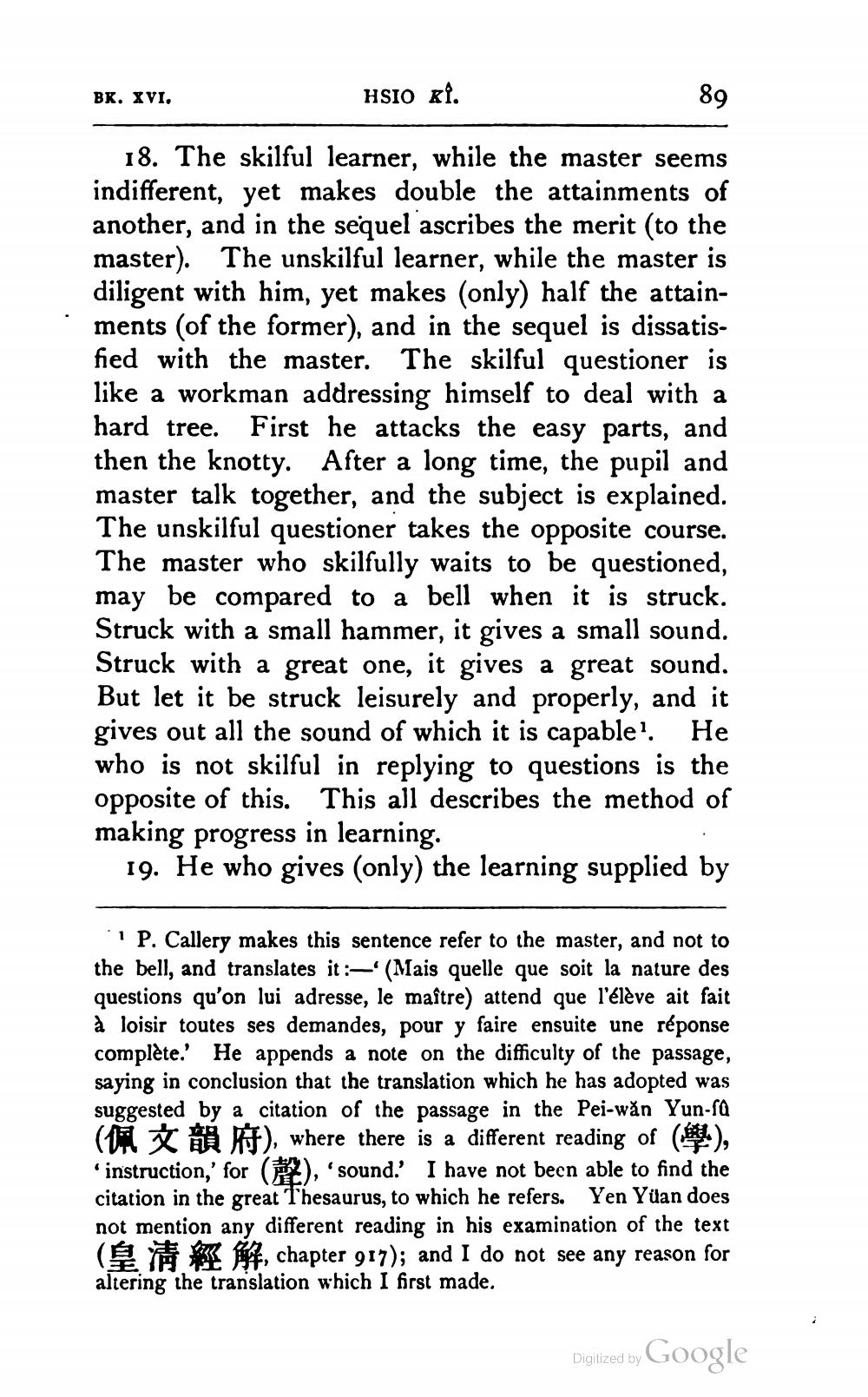________________
BK. XVI.
HSIO RI.
18. The skilful learner, while the master seems indifferent, yet makes double the attainments of another, and in the sequel ascribes the merit (to the master). The unskilful learner, while the master is diligent with him, yet makes (only) half the attainments (of the former), and in the sequel is dissatisfied with the master. The skilful questioner is like a workman addressing himself to deal with a hard tree. First he attacks the easy parts, and then the knotty. After a long time, the pupil and master talk together, and the subject is explained. The unskilful questioner takes the opposite course. The master who skilfully waits to be questioned, may be compared to a bell when it is struck. Struck with a small hammer, it gives a small sound. Struck with a great one, it gives a great sound. But let it be struck leisurely and properly, and it gives out all the sound of which it is capable'. He who is not skilful in replying to questions is the opposite of this. This all describes the method of making progress in learning.
19. He who gives (only) the learning supplied by
''P. Callery makes this sentence refer to the master, and not to the bell, and translates it :-(Mais quelle que soit la nature des questions qu'on lui adresse, le maître) attend que l'élève ait fait à loisir toutes ses demandes, pour y faire ensuite une réponse complète.' He appends a note on the difficulty of the passage, saying in conclusion that the translation which he has adopted was suggested by a citation of the passage in the Pei-wăn Yun-fa (0 W), where there is a different reading of ( ), instruction,'
ound. I have not been able to find the citation in the great Thesaurus, to which he refers. Yen Yuan does not mention any different reading in his examination of the text (
chapter 917); and I do not see any reason for altering the translation which I first made.
SILIULUI
Digitized by Google




